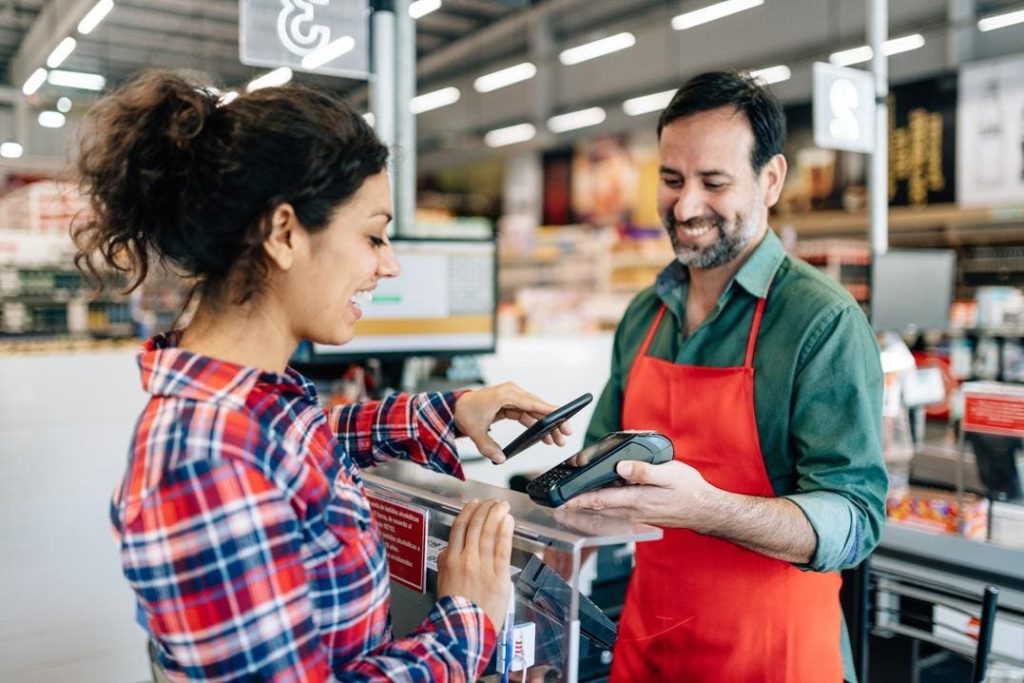Customer experience in 2023 looks different than it ever has before. With a looming recession, changing customer preferences and priorities, and new technology, CX teams have incredible opportunities to innovate and connect in new ways. But they have to understand their customers and the industry first.
Here are 100 fresh statistics about the state of customer experience in 2023.
The Impact of Customer Experience: Customer-Centricity Affects the Bottom Line
1) 97% of consumers and 98% of contact center managers say customer service interactions impact whether consumers stay loyal to a brand. (Calabrio)
2) 61% of consumers will pay at least 5% more if they know they’ll get a good customer experience. (Emplifi)
3) 60% of consumers have switched brands due to a negative contact center experience. (Calabrio)
4) 70% of brands see a direct connection between customer service and performance. (Zendesk)
5) 87% of customers actively avoid buying from brands they don’t trust. (Sinch)
6) 74% of CX leaders say improving content and knowledge delivery to customers and employees is important. (Gartner)
7) 81% of customers say a positive customer service experience increases the chances of them making another purchase. (Zendesk)
8) 95% of consumers say customer service impacts their brand loyalty, naming easy access, self-service, and professional agents as important factors. (NICE)
9)64% of leaders say customer service has a positive impact on their company’s growth. (Zendesk)
10) 60% of leaders say customer service improves customer retention. (Zendesk)
11) 88% of buyers say experience matters as much as a company’s products or services. (Salesforce)
12) 80% of consumers feel more emotionally connected to a brand when customer service solves their problem. (CGS)
The State of CX in 2023: Customers are Losing Patience
13) CX quality fell for 19% of brands in 2022, the lowest rate in 17 years. (Forrester)
14) In 2022, only 3% of U.S. companies were customer-obsessed, a decrease of 7% from 2021. (Forrester)
15) 68% of customers trust companies to act with society’s best interest in mind, a jump from 59% in 2020. (Salesforce)
16) 39% of consumers have less patience today than they did before the pandemic. (Netomi)
17) 54% of consumers say brands treat customer service as an afterthought. (Zendesk)
18) Overall customer satisfaction is up 2% over 2020, despite increased demand and challenges. (CGS)
19) 49% of customers had more bad customer service experiences in the past year compared to the year before. (Amazon)
20) 56% of consumers say most companies treat them like numbers. (Salesforce)
21) 60% of customers say it feels like they are communicating with separate departments, not one company. (Salesforce)
22) 59% of customers trust the brands they interact with. (Forrester)
23) 62% of companies don’t respond to customer service emails. (SuperOffice)
24) Only 20% of companies answer questions in full on the first reply. (SuperOffice)
25) 61% of consumers have hung up the phone mid-conversation with an agent because of frustration. (Netomi)
26) The average response time for a customer service request is 12 hours and 10 minutes. (SuperOffice)
27) 73% of consumers say they’ve experienced an agent being rude to them. (Netomi)
28) 65% of consumers have needed to follow up more than once to get their question resolved. (Netomi)
Customer Preferences: Technology is a Top Priority
29) Customers use an average of nine touchpoints to engage with companies. (Salesforce)
30) 60% of customer touchpoints take place online. (Salesforce)
31) Nearly 80% of consumers still rank phone interactions as their preferred customer service channel. (Calabrio)
32) 18% of consumers say free shipping is the most important factor in making a purchase. (Loqate)
33) 73% of consumers want to be able to seamlessly move between channels. (Zendesk)
34) 94% of customers rate video support as a positive experience. (Hubspot)
35) More than 80% of consumers have shopped across at least three channels in the last six months. (PwC)
36) 78% of customers say environmental practices influence their decision to buy from a company. (Salesforce)
37) 71% of customers have switched brands at least once in the last year as priorities, lifestyles, or financial situations changed. (Salesforce)
Expectations: Customers Want Convenience and Connection
38) 86% of consumers say showing empathy is powerful in building a strong relationship with the brand. (Sitecore)
39) 65% of consumers say they love fewer than three brands. (Redpoint)
40) 66% of consumers have committed to never shopping with a brand following a bad experience. (Sitecore)
41) 70% of Americans crave deeper, more personal connections with brands. (Sitecore)
42) 38% of consumers expect agents to have context of their query. (Freshworks)
43) 52% of consumers expect to get their question answered within one hour of posting it on a brand’s digital channels. (Emplifi)
44) 83% of customers expect to interact with someone immediately upon contact. (Salesforce)
45) 93% of customers expect a brand to reply to them within 24 hours. (Smart Tribune)
46) 73% of customers expect companies to understand their unique needs and expectations. (Salesforce)
47) More than 70% of customers expect conversational service every time they engage with a brand. (Zendesk)
48) 83% of customers expect to resolve complex problems through a single person. (Salesforce)
Chatbots, AI, and Self-service: New Tech on the Rise
49) 75% of brands will be using AI-based selling by 2025. (Smart Tribune)
50) 94% of leaders say AI can enhance customer self-service. (Five9)
51) 57% of customers prefer to engage companies through digital channels. (Salesforce)
52) 70% of consumers think contact centers should prioritize agent training instead of adding additional channels like chatbots. (Calabrio)
5) 47% of consumers prefer a website with a chatbot. (Smart Tribune)
54) 48% of consumers feel comfortable with interactions managed by bots. (Hubspot)
55) 90% of customers want to be able to reply in-message to ask questions. (Sinch)
56) 52% of consumers prefer chat, making it the top digital channel preferred by most customers. (NICE)
57) 66% of chats occur via mobile device. (Live Chat)
58) 67% of customers are happy with their current level of customer service via messaging channels. (NICE)
59) 54% of brands say their chat feature isn’t good enough yet. (NICE)
60) The average first response time per chat is 48 seconds. (Live Chat)
61) 95% of customers want to be able to switch instantly from messaging chat to voice chat. (Sinch)
62) 64% of consumers are satisfied with their interactions with chatbots. (Live Chat)
63) 89% of consumers want two-way conversations with brands through messaging channels and apps. (Sinch)
64) 69% of consumers try to solve issues on their own. (Hubspot)
65) 59% of customers prefer self-service for simple questions. (Salesforce)
66) 11% of businesses are prioritizing making self-service smarter, but 36% of consumers want this to be a priority. (NICE)
67) 62% of brands have increased their investments in self-service. (Hubspot)
68) 81% of consumers say they want more self-service options. (NICE)
69) 34% of consumers say the biggest benefit of self-service is faster response times. (NICE)
70) Adoption of video support has increased 47% since 2020. (Salesforce)
71) Only 10% of newly built digital platforms are fully scaled or adopted by customers. (McKinsey)
72) Only 20% of digital contacts are unassisted at most brands. (McKinsey)
73) Only 12% of digital platforms are highly integrated. (McKinsey)
Contact Centers and CX Leadership: What Do Frontline Workers Think?
74) 90% of CX leaders say customer expectations have increased to an all-time high. (Hubspot)
75) 61% of CX leaders report an increase in total calls. (McKinsey)
76) 58% of contact center leaders expect call volumes to increase further in the next 18 months. (McKinsey)
77) 79% of executives say digital customer experience is extremely or very important. (CMSWire)
78) 91% of marketers say remote work has affected their ability to deliver amazing customer experiences. (Optimizely)
79) 40% of organizations say customer experience isn’t prioritized by the C-Suite. (Zendesk)
80) 71% of leaders say their contact center agents are essential in driving sales. (Zendesk)
81) 65% of leaders have increased their focus on metrics for agent productivity and retention. (Five9)
82) 78% of contact center agents say it’s difficult to balance speed and quality, an increase from 63% in 2020. (Salesforce)
83) 88% of contact center agents say customers have higher expectations than they did in previous years. (Hubspot)
84) 79% of agents say customers are more informed than they were in the past. (Hubspot
85) 81% of agents say the phone is a preferred channel for complex issues. (Salesforce)
86) 54% of agents say management views customer service as a revenue generator and not a business cost. (Salesforce)
87) 85% of agents agree that customers are more likely than ever to share positive and negative experiences. (Hubspot)
88) 82% of customers would be more loyal to a brand that empowers contact center agents to solve issues without having to follow a script. (Sitecore)
89) 74% of consumers believe the employee experience impacts the customer experience. (Cogito)
90) 54% of consumers say having empathy in service interactions is very important. (Cogito)
The Power of Personalization: Customers Want to Be Seen
91) Brands that lead in personalization improve customer loyalty 1.5x more effectively than brands with poor personalization. (Deloitte)
92) 74% of consumers feel brand loyalty is about feeling understood and valued, not discounts and loyalty perks. (Redpoint)
93) 80% of consumers are more likely to buy from brands that offer more personalized experiences. (Freshworks)
94) 64% of consumers would rather purchase from a brand that knows them. (Redpoint)
95) 73% of customers expect companies to understand their unique needs and expectations. (Salesforce)
96) 49% of consumers are more likely to purchase from a brand that does personalization well. (Redpoint)
97) 52% of consumers say the top way to make customers feel understood is by offering relevant product recommendations. (Redpoint)
98) More than 50% of consumers say personalization tends to feel off-target and doesn’t meet their needs or preferences. (Deloitte)
99) 73% of brands have increased their efforts to deliver a personalized experience to customers. (Get Feedback)
100) 71% of CX leaders say personalization has a significant impact on their brands’ customer strategy. (Deloitte)
_________________
Blake Morgan is a customer experience futurist and the bestselling author of The Customer of the Future. For regular updates on customer experience, sign up for her weekly newsletter here.
Read the full article here










